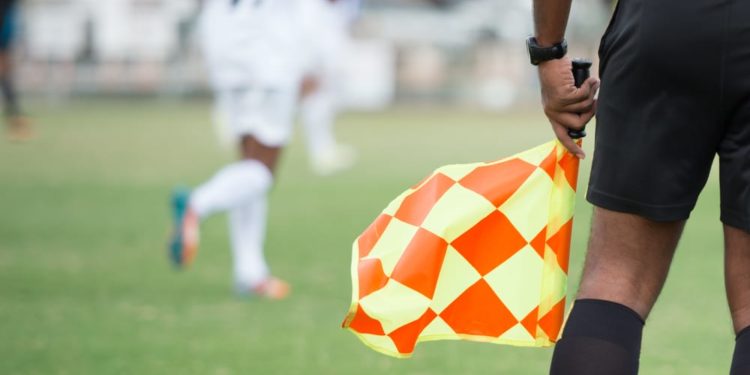In college, the majority of students who engage in intramural sports do so to actually play. Chances are being an official is not their motivation for joining a team. However, as Brian Mills, the director of recreation at the University of Houston-Clear Lake explains, there are numerous benefits to becoming an intramural official.
“Officiating can set you up for success, plain and simple,” said Mills. “Being an official exposes you to a lot of harsh realities. You don’t often get praise on a regular basis and life can be the same way. If you want to work bigger and better games at higher levels, you have to dedicate yourself just like if you want a promotion or a better job. You have to work with people as a team, not just as individuals who happen to be assigned the same project. Officiating is an amazing look into the true identity of who we are as individuals, because it is really hard to hide being fake as an official when working games.”
Here are Mills highlights few of the benefits of being an intramural official.
Personal Development
Being an official challenges who you are as a person. You will more than likely struggle at the beginning in any sport. You will feel vulnerable and nervous, you will make mistakes, you will not be comfortable … and that is okay. Officiating can bring out the best in you, if you let it.
Emotional Intelligence Development
Emotional intelligence is, in a very condensed form, how we deal with our environment. There are four stages – self-awareness, self-management, social awareness and relationship management. Each stage builds off of the others. You have to know your own reactions to things … how do you manage stress, how do you react when ___ happens, what gets under your skin, etc. Once you have a solid awareness of yourself, you can learn to manage your reactions. After you learn to manage yourself, you start to look outward and learn to recognize other people’s emotional intelligence levels…how do they react when ___ happens, what sets them off, what works to calm them down, etc. And finally how do you manage the relationships?
While the principle of emotional intelligence was not created with officiating in mind, it is almost perfect for the development of young officials. As I stated earlier, you will be challenged personally, so how does your body and mind react when you are in this uncomfortable stage? Once you know how you react, how do you manage that (breathing, asking questions instead of making statements, agreeing with feedback instead of ignoring it, etc.) Once you can manage yourself, you can start to focus on characteristics of players, coaches, spectators, managers, other officials and see how they are reacting to what is happening. Then you can learn to manage difficult situations before they get out of control or even before they happen.
Learning Productive Positive Behavior
I have started asking two simple questions in the past couple of years for our general officials’ trainings for potential new officials …’In your playing career, what made an official stand out as a bad official and good official.’ This makes students think about characteristics that stand out to them. I try to explain to them that officials choose every aspect of how they come off. Good officials choose to the do the positive things to the best of their ability. If good officials make a mistake, miss a call, or mess up an enforcement, the good official self analyzes, listens to feedback, watches tape, asks questions, look up the information so as to not make that mistake again. That is life … if you don’t know or mess it up you have to figure out how to get better or you are going to get passed up.
Communication and Conflict Management
Many people see officiating as an adversarial role to that of the teams and coaches. People see officials as a determining factor in the final outcome of a game. And while the officials can make a decision that seems to favor one team over the other, the fact is that we are the only people on a field or court who don’t have a vested interest in the outcome. In the perceived adversarial role, you have to learn to communicate and manage conflict. You don’t have an infinite amount of time to communicate, so being clear and concise means being confident enough to make a decision and then strong enough to back it up without having to stop a game to have a prolonged conversation about every call or no call.
Part of officiating is sometimes reassuring coaches you are all on the same team, which should be for a fair and safe contest. Sometimes you have to get blunt with them about it, but in the end they need to be part of the game the same way you have to be part of the game. This can apply to the business world, the world of education and even to family life (try explaining every decision you make to a five-year-old related to ice cream breakfasts or staying at the beach with no sunscreen for 12 hours a day).
Cultivating Friendships
The officiating world is a small and tight-knit group of individuals. I wear being an official like badge of honor. I am proud of what I did 18 years ago as an undergrad and I am proud of what I did last week in high school baseball. I mostly remember officiating games because of the people I worked with instead of the craziness of a game. From my formative years as an undergraduate official I made a core group of friends. Eighteen years later, I am still friends with them. We still talk, share stories, mentor each other and are there for each no matter what. That is the most beneficial part of officiating in my mind.










